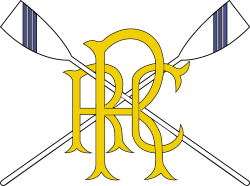Report breaks and faults with Boats/Launches/Ergs/Blades
To report a fault you can scan a QR code on one of the many posters around the Club and this will take you to our simple report form (https://forms.gle/1xAs55aBcbCFYumNA) You can also email direct to our Boat Manager
Safety Rules
Reading Rowing Club is committed to Member safety. It follows all British Rowing and Environment Agency guidelines and has introduced a number of its own safety practices to ensure that all members are safe when out on the water and training in the Clubhouse. New members will be asked to attend an initial Club safety briefing before being allowed to go afloat.
All club members, and all those who boat from Reading’s landing stages, are required to read and observe the guides:
RRC Safety Guidelines (PDF)
Appendix A – Navigation Rules and Danger Areas (PDF)
Appendix B – Landing Circulation Pattern (PDF)
Capsize Tests
All members must have passed a capsize test at Reading Rowing Club, even if they have previously passed one at another club. Capsize tests are run by the club’s Rowing Safety Advisor, and members will be informed when one has been organised.
Flow Rate
https://www.gaugemap.co.uk/#
View detailed live flow information.
View Gaugemap flow history information. (Note Gaugemap data can be in the region of 6 hour data behind current flow, but does provide useful historical data that help identify trends, and also shows River levels.
Club Policy based on Water Flow, but note local conditions do need to be taken into account and coaches
0 - 50 : Green : Low or normal flow.
No restrictions.
51 - 75 : Green : High flow.
No novice coxes or steer persons.
76 - 100 : Amber : Very high flow.
4s and 8s only. No singles, doubles or pairs. Juniors at coaches discretion.
Over 100 : Red : No rowing.
Dangerously high flow. See Club rules for limited exceptions.
A reminder that Risk Assessments are available in the folder located on the shelves just outside the office.
Welfare and safeguarding
Reading Rowing Club upholds a duty of care to all of our members. Our Club Welfare Officer (CWO) ensures that Reading Rowing Club is compliant with British Rowing guidelines on welfare and safeguarding. The CWO manages the DBS check process, and ensures that all adult volunteers and coaches are appropriately trained.
The CWO is available most weekends at the club for junior rowers, parents, and other members of the club who have questions or would like to discuss any welfare matters. You can also contact the CWO by email here: welfare@readingrc.com
All club members are required to adhere to the following policies and guide(s):
RRC Junior Squad Regulations (PDF) - being updated, includes RRC Code of Conduct
RRC Safeguarding Policy (PDF)
RRC Anti-Bullying Policy (PDF)
British Rowing Code of Conduct (PDF)
British Rowing Safeguarding and Protecting Children (PDF)
Code of Practice - Sports Coaches (PDF)
How Much How Often - Junior Coaches (PDF)
RRC Changing Room Policy (PDF)
Further information regarding junior athletes, can be found on British Rowing website here.
Incident reporting British Rowing
Report an Incident with British Rowing. It is important to report all incidents using the British rowing form, this includes capsizes, bumps and near misses with other boats/craft on the river, any injuries occuring when at the club or on the water etc... The club also needs to report damages and injuries to our insurers who also expect this report to be completed. For further information on the Incident Reporting procedure please see British Rowing's Row Safe, Section 4.1
